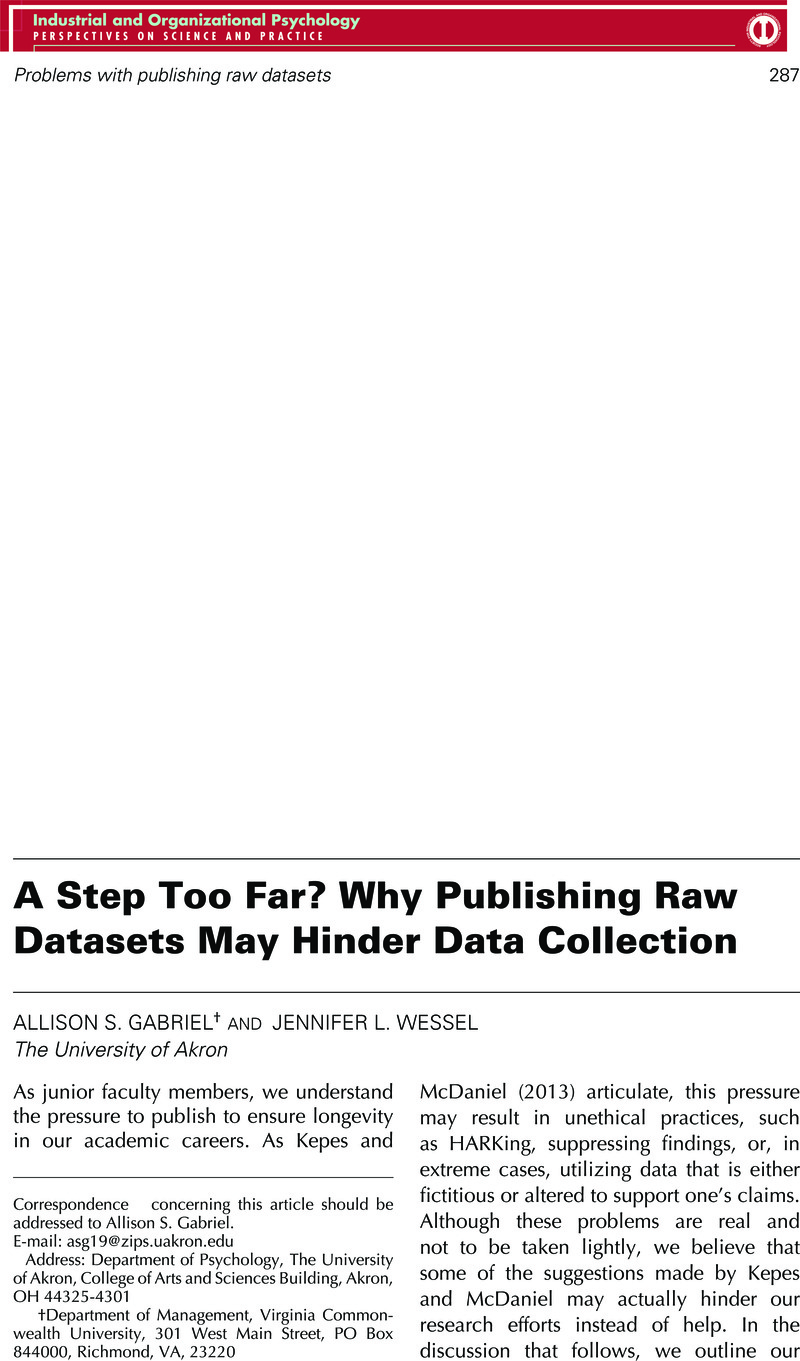Crossref Citations
This article has been cited by the following publications. This list is generated based on data provided by Crossref.
Kepes, Sven
List, Sheila K.
and
McDaniel, Michael A.
2018.
Enough Talk, It's Time to Transform: A Call for Editorial Leadership for a Robust Science.
Industrial and Organizational Psychology,
Vol. 11,
Issue. 1,
p.
43.
Grand, James A.
Rogelberg, Steven G.
Allen, Tammy D.
Landis, Ronald S.
Reynolds, Douglas H.
Scott, John C.
Tonidandel, Scott
and
Truxillo, Donald M.
2018.
A Systems-Based Approach to Fostering Robust Science in Industrial-Organizational Psychology.
Industrial and Organizational Psychology,
Vol. 11,
Issue. 1,
p.
4.
Banks, George C.
Field, James G.
Oswald, Frederick L.
O’Boyle, Ernest H.
Landis, Ronald S.
Rupp, Deborah E.
and
Rogelberg, Steven G.
2019.
Answers to 18 Questions About Open Science Practices.
Journal of Business and Psychology,
Vol. 34,
Issue. 3,
p.
257.
Craig, Russell
Cox, Adam
Tourish, Dennis
and
Thorpe, Alistair
2020.
Using retracted journal articles in psychology to understand research misconduct in the social sciences: What is to be done?.
Research Policy,
Vol. 49,
Issue. 4,
p.
103930.
Дем’яненко, В. М.
Мар’єнко, М. В.
Носенко, Ю. Г.
Семеріков, С. О.
and
Шишкіна, М. П.
2020.
Адаптивна хмаро орієнтована система навчання та професійного розвитку вчителів закладів загальної середньої освіти.
Kepes, Sven
Banks, George C.
and
Keener, Sheila K.
2020.
The TOP factor: An indicator of quality to complement journal impact factor.
Industrial and Organizational Psychology,
Vol. 13,
Issue. 3,
p.
328.
Castille, Christopher M.
Kreamer, Liana M.
Albritton, Betsy H.
Banks, George C.
and
Rogelberg, Steven G.
2022.
The Open Science Challenge: Adopt One Practice that Enacts Widely Shared Values.
Journal of Business and Psychology,
Vol. 37,
Issue. 3,
p.
459.



